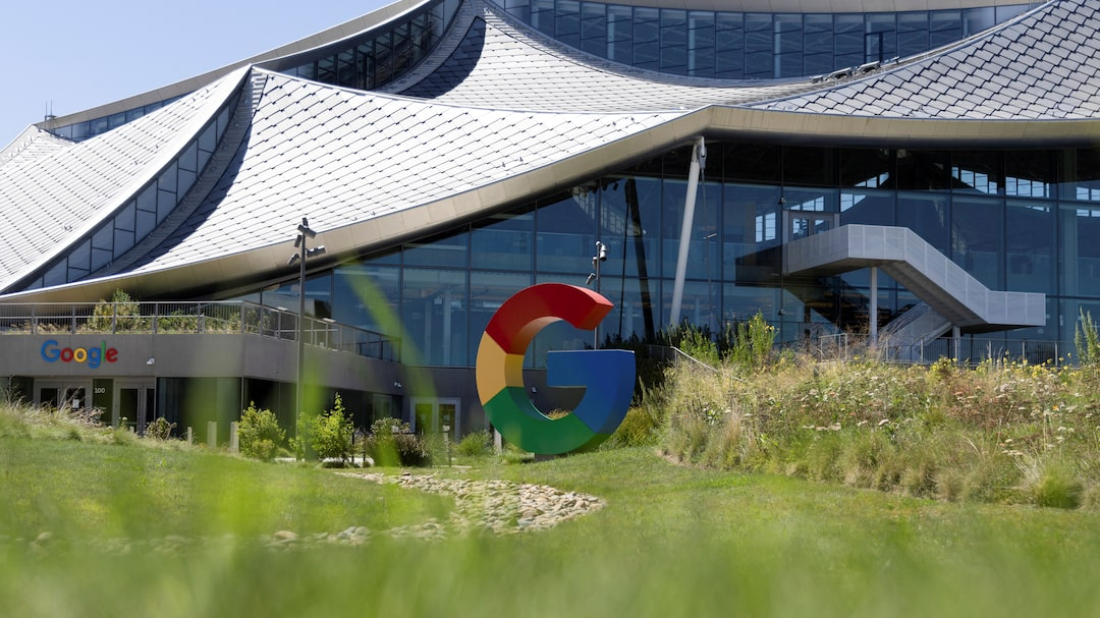Two killed as Israel launches fresh strikes in Lebanon’s South
Israeli airstrikes on southern Lebanon killed two people in the past 12 hours, Lebanon’s Health Ministry said on Tuesday....

In a flurry of negotiations following President Donald Trump’s inauguration, Google has significantly accelerated its acquisition of Israeli cybersecurity firm Wiz, elevating its offer from an initial $23 billion to a whopping $32 billion—one of the largest tech deals in history.
Sources familiar with the matter say that a more favorable antitrust outlook under the new administration was the decisive factor in reviving and sweetening the deal.
Executives revealed that discussions, which had stalled less than a year ago, gained renewed momentum just eight weeks after Trump took office. Key appointments in the White House—particularly within antitrust circles—instilled confidence in both Google and Wiz that regulatory scrutiny would be less severe than anticipated. “The prospect of a friendlier review process made it hard for Wiz executives to turn down the revised offer,” one source said.
The deal, now valued 39% higher than the original bid, includes a reverse breakup fee exceeding $3.2 billion—more than 10% of the total transaction value. This fee, intended to compensate Wiz if the deal collapses due to regulatory reasons, dwarfs typical breakup fees that usually range between 4% and 7% of the deal’s value, according to industry studies.
Wiz’s new Chief Financial Officer, Fazal Merchant—who joined the company in January—and CEO Assaf Rappaport have been instrumental in finalizing the agreement, while Google’s cloud chief Thomas Kurian played a pivotal role in shaping the deal’s framework. Sources indicated that prior to Trump's inauguration, negotiations were sporadic, but regular meetings commenced soon after key antitrust officials were appointed, including Andrew Ferguson at the FTC and Gail Slater at the Justice Department.
The revised offer not only makes the deal economically attractive, with Wiz reportedly generating over $700 million in annualized revenue and experiencing 70% annual revenue growth, but also addresses concerns raised by Wiz’s venture-capital backers. Many had been wary following the collapse of Adobe's $20 billion attempt to acquire Figma due to antitrust challenges, and were particularly anxious about potential regulatory hurdles under the previous administration led by FTC Chair Lina Khan.
While it remains unclear if Google and Wiz engaged in preemptive discussions with U.S. antitrust authorities—a tactic employed by some companies to smooth the regulatory path—the Trump administration’s actions have, at least according to sources, provided a more predictable environment for the deal’s completion.
Bank of America advised Google on the transaction, with Goldman Sachs advising Wiz. Neither Google, Wiz, nor officials from the White House and Justice Department have immediately responded to requests for comment.
As the deal now nears its final stages, industry watchers are noting how shifts in U.S. regulatory policy can dramatically alter the dynamics of major tech acquisitions, setting a precedent for future transactions in a rapidly evolving digital economy.
U.S. Ambassador to NATO Matthew Whitaker said China has the power to bring an end to Russia’s war in Ukraine, arguing that Beijing is enabling Moscow’s military campaign.
Austria’s Janine Flock won the gold medal in the women’s skeleton event at the Milano-Cortina 2026 Winter Olympics on Saturday.
Iran’s Supreme National Security Council Secretary Ali Larijani said the United States could evaluate its own interests separately from those of Israel in ongoing negotiations between Tehran and Washington.
U.S. Secretary of State Marco Rubio on Sunday (15 February) called it “troubling” a report by five European allies blaming Russia for killing late Kremlin critic Alexei Navalny using a toxin from poison dart frogs.
Israel’s National Guard is preparing to deploy drones capable of firing tear gas at Palestinians in the occupied West Bank, including East Jerusalem, as part of security preparations ahead of the Muslim holy month of Ramadan, Israeli Channel 12 reported on Saturday.
Millions of Colombian roses have arrived in the United States just in time for Valentine’s Day, keeping the country on track as the world’s second-largest flower exporter. Between 15 January and 9 February, Colombia shipped roughly 65,000 tons of fresh-cut blooms.
Russia’s car market is continuing to receive tens of thousands of foreign-brand vehicles via China despite sanctions imposed after Moscow’s full-scale invasion of Ukraine in 2022, a journalistic investigation has found.
Türkiye’s national energy company, TPAO, has struck a new cooperation deal with U.S. energy giant Chevron, signing a memorandum of understanding to explore joint oil and gas exploration and production opportunities, the Turkish Energy and Natural Resources Ministry announced on Thursday.
Wall Street ended sharply lower on Tuesday as investors worried about artificial intelligence (AI) creating more competition for software makers, keeping them on edge ahead of quarterly reports from Alphabet and Amazon later this week.
U.S. stock markets finished mixed on Wednesday (28 January) as investors reacted calmly after the Federal Reserve left interest rates unchanged, a decision that had been widely expected and largely priced in.
You can download the AnewZ application from Play Store and the App Store.

What is your opinion on this topic?
Leave the first comment